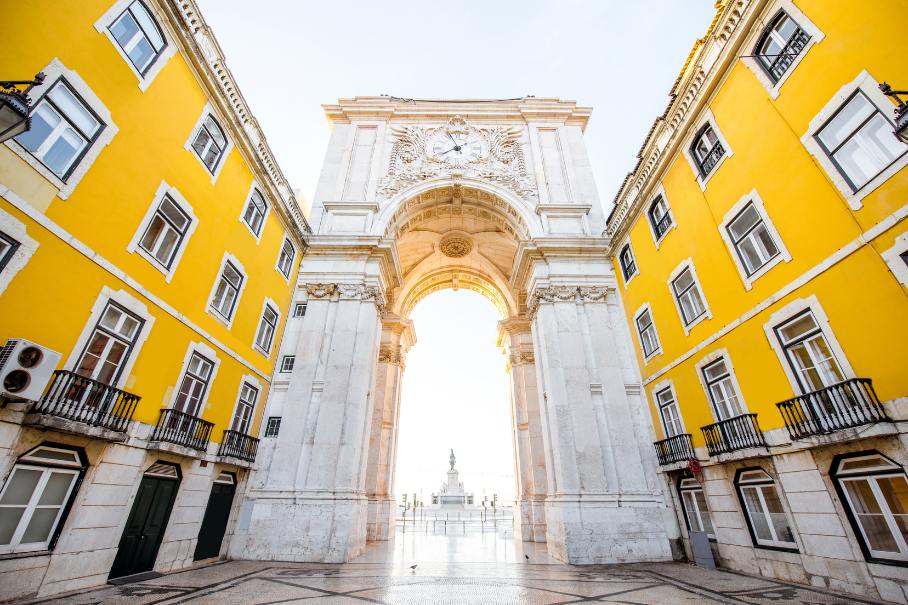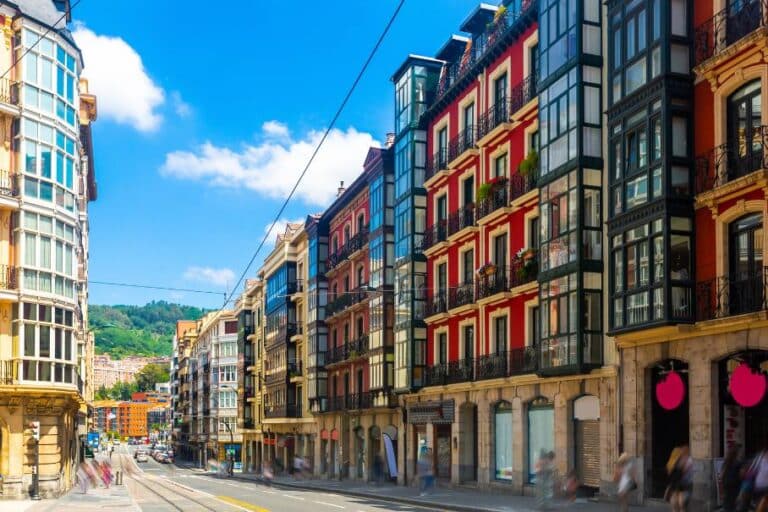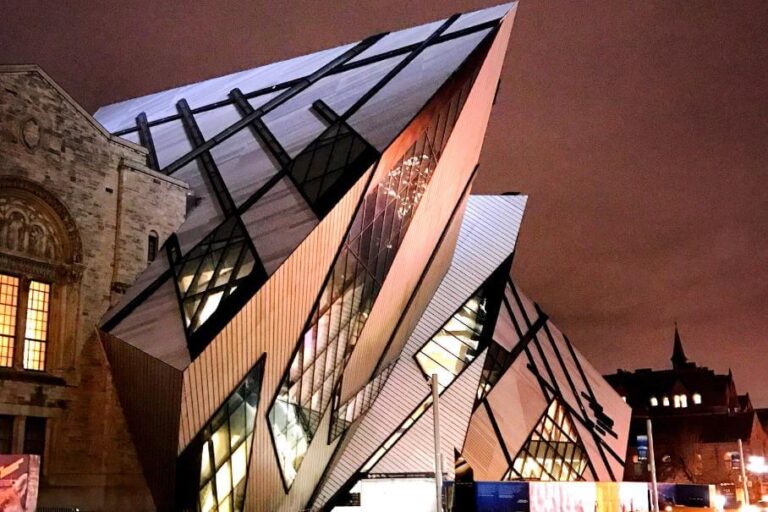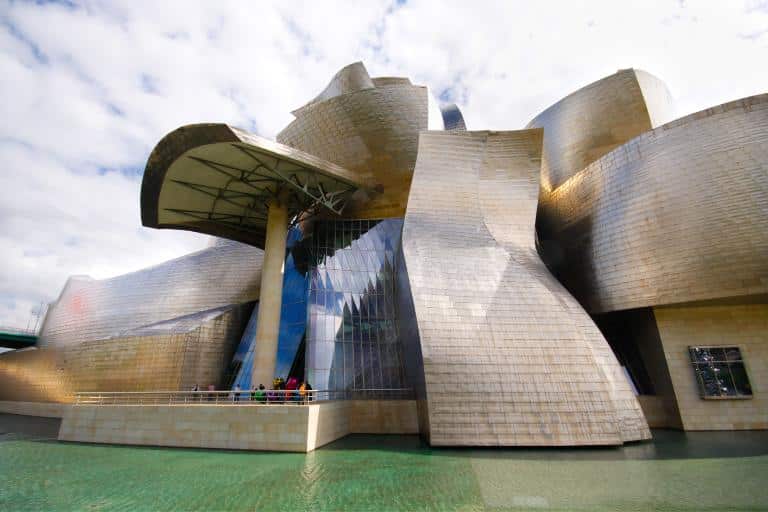20 Best Lisbon Museums and Galleries to Explore
Like most people who come to Lisbon, I came here for the food, the vibe and the unique architecture. I wasn’t prepared to discover so many amazing museums that show off the city’s rich cultural past. Lisbon museums are a great place to start if you want to learn more about Portugal’s past and its history. It is, after all, a country full of fascinating people and events that will make any cultural traveller weep with joy.
Lisbon is home to over 80 museums, from former royal palaces to those focusing on everything from archeology to pharmacy and cinema. Whether you are an art enthusiast, a history buff, or a curious traveller, Lisbon museums host exhibitions that tell the story of the city and the nation. Let’s dive in.
Lisbon museums to get started
Let’s explore some of the most interesting Lisbon museums for an art and cultural fix. From ancient masterpieces to contemporary creativity, there’s something for everyone to marvel at in this vibrant city. If you’re coming to Lisbon on a city break, plan your visit in advance. That way, you’ll be able to choose the museums in Lisbon to see and plan ahead.
National Museum of Ancient Art (Museu Nacional de Arte Antiga)
The museum houses the most significant collection of Portuguese art from the 12th to the 19th century. Its extensive collection includes paintings, sculptures and decorative arts, with exceptional works from renowned artists such as Hieronymus Bosch, Albrecht Dürer and Nuno Gonçalves.
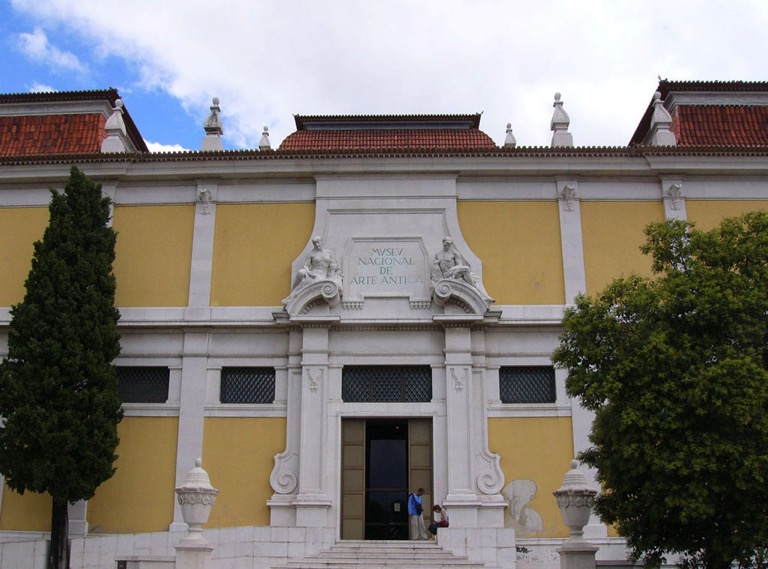
One of the highlights is the Temptation of St. Anthony, an oil panel by Hieronymus Bosch, which is evidence of the artist’s signature fantastical imagination. Here, you can also admire the Pertensis Madonna, a beautiful 15th-century Flemish piece that once resided in the Évora Cathedral.
Calouste Gulbenkian Museum (Museu Calouste Gulbenkian)
The museum is home to one of Europe’s finest collections of art. It was founded on the impressive private collections of Calouste Gulbenkian, which include art from antiquity to the early 20th century. Here, you can see works from some of the world’s most celebrated artists under one roof.
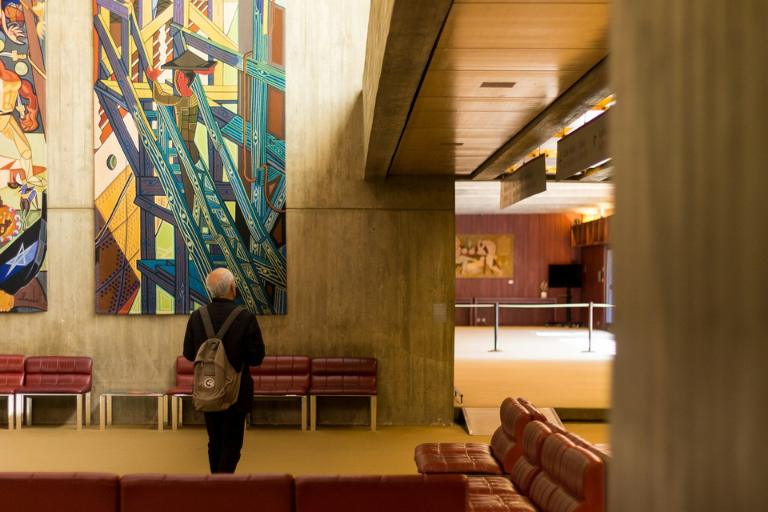
The museum’s collection spans 4,000 years and features Egyptian, Greco-Roman, and Islamic art. Notable pieces include two rare illuminated manuscripts from the 6th and 13th centuries and a comprehensive range of works representative of the major Western European artistic movements.
Museum of the Presidency of the Republic (Museu da Presidência da República)
The museum offers a unique look into Portugal’s political history and the lives of its presidents. It’s located near Belém in a charming building connected to the Belém Palace, the official residence of the President of Portugal.
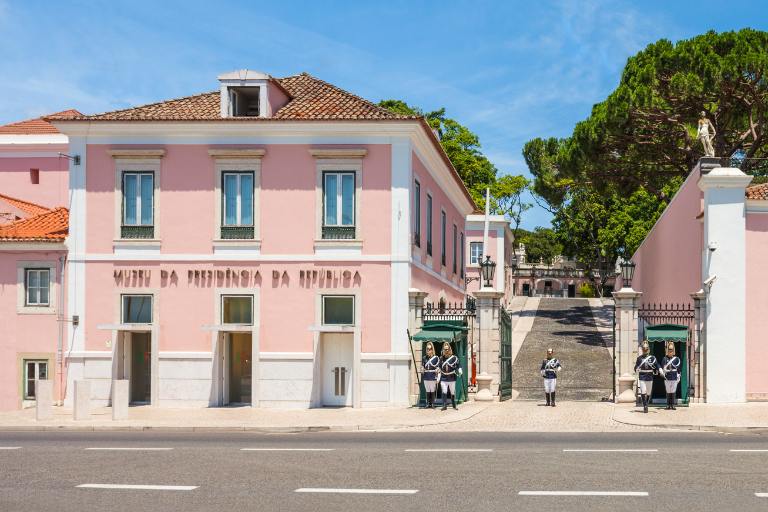
The exhibits include personal items, gifts from foreign dignitaries, and memorabilia that showcase the evolution of the presidency since the establishment of the Portuguese Republic in 1910. You can also learn about key historical events, from the republican revolution to modern-day politics, through interactive displays and archival footage.
Pharmacy Museum (Museu da Farmácia)
The Pharmacy Museum is a hidden gem in Lisbon. It offers a fascinating insight into the history of medicine and pharmacy in different cultures and eras. Located in the vibrant Chiado district, it features an impressive collection of artifacts, including ancient apothecary jars, rare medicinal books, and even a complete 19th-century Portuguese pharmacy.
PRO TIP: Save money and time by getting the Lisbon Card. You can enjoy free admission to top Lisbon museums and attractions, discounts, and free access to public transit. Available for 24, 48, or 72 hours.
Here, you can also find pharmacy-related items from ancient Egypt, Greece, Rome and even the Incan Empire. If you’re curious about the evolution of medicine and how different cultures treated illness, this is a must-see. Plan to spend at least an hour here to fully appreciate the rich history on display.
Military Museum (Museu Militar)
The Military Museum is one of the oldest Lisbon museums, housed in a grand 18th-century building near Santa Apolónia train station. Here, you can learn about Portugal’s military history, which has an extensive collection of weapons, artillery, uniforms and historical documents. A standout feature is the museum’s exquisite tiled panels, depicting scenes from Portugal’s military past.
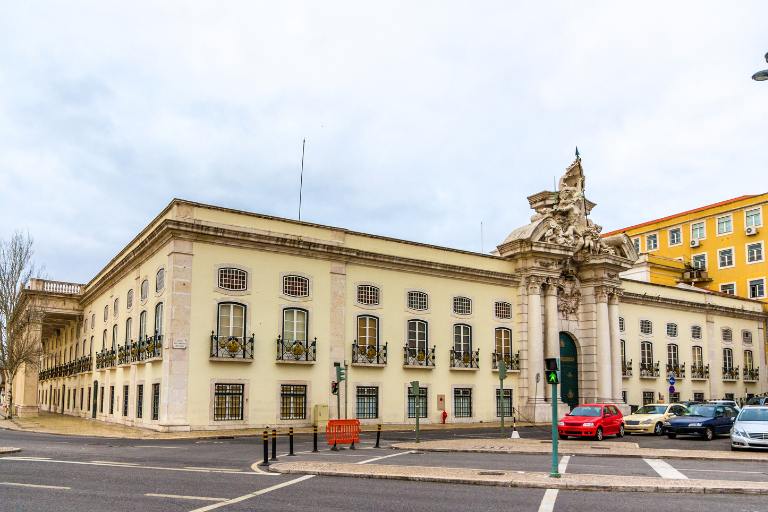
The collection includes items from pivotal events such as the Napoleonic Wars, World War I, and Portugal’s colonial campaigns. Don’t miss the outdoor courtyard, where you can check out cannons and other heavy artillery while enjoying the museum’s stunning architecture. Whether you’re a history buff or just curious about Portugal’s role in global conflicts, this museum is worth a visit.
Berardo Collection Museum (Museu Coleção Berardo)
This modern and contemporary museum offers free entry to its permanent exhibition of international art collections from the late 20th and 21st centuries. It’s a fascinating journey through modern art, offering a valuable perspective on contemporary culture and society through the lens of artistic expression.
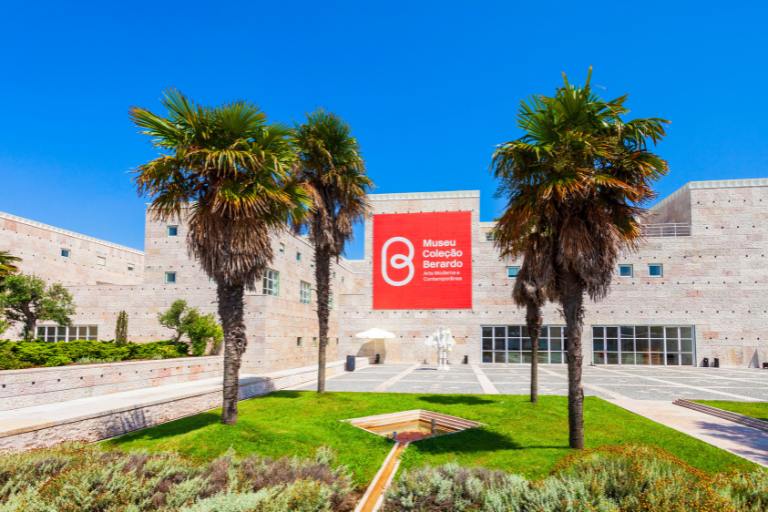
Featuring works of art by more than 900 artists, including Pablo Picasso, Salvador Dalí, Joan Miró and Andy Warhol, the Berardo Collection covers movements such as Dada, Surrealism, Abstract Expressionism, and Pop Art. The museum’s dynamic program also features temporary exhibitions.
National Azulejo Museum (Museu Nacional do Azulejo)
The is one of the most unique of Lisbon museums to explore. It’s the national tile museum dedicated to the famous Portuguese azulejo tiles. Housed in the Madre de Deus Convent, a national monument, the museum’s collection spans six centuries of tiles, including some of the world’s most beautiful azulejo tiles.

The museum showcases decorative tile work in traditional and modern styles that line the walls and floors, creating stunning architectural displays. The blue and white azulejo ceramic tiles depicting historical and cultural scenes are particularly impressive. It’s an excellent opportunity to learn about the tiles and their role in Portuguese culture and architecture.
Fado Museum (Museu do Fado)
This museum is dedicated to the iconic Portuguese music genre of fado dating back to the 1820s. This poignant musical expression is recognized by UNESCO as part of the Intangible Cultural Heritage of Humanity. The museum showcases the history and development of fado through a rich collection of audiovisual archives, instruments, and interactive exhibits.
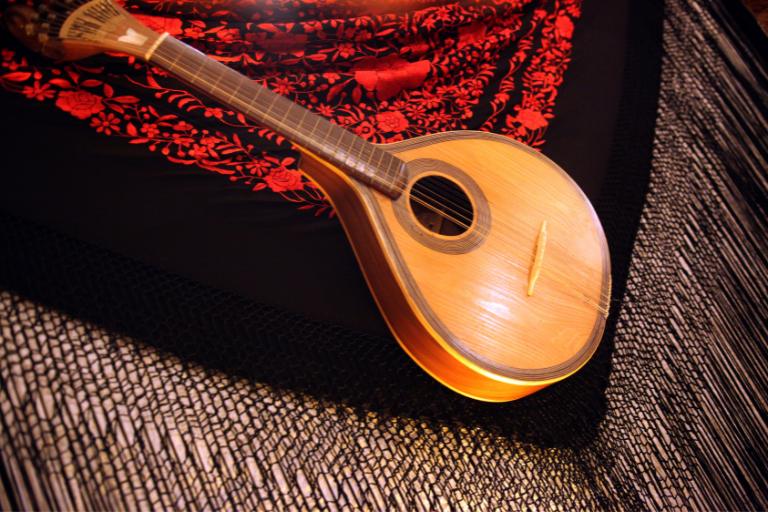
You can listen to original pieces from legendary fado artists and contemporary interpretations. For a unique insight into the soul of Portuguese culture and an understanding of the role that fado plays in the hearts of the people, the museum is an emotional and educational experience.
Ajuda National Palace (Palácio Nacional da Ajuda)
The Ajuda National Palace is one of the grandest palaces in Lisbon. Built in the neoclassical style, it was intended to be the royal family’s official residence but now presents an elegant museum showcasing the opulence and history of the Portuguese monarchy.
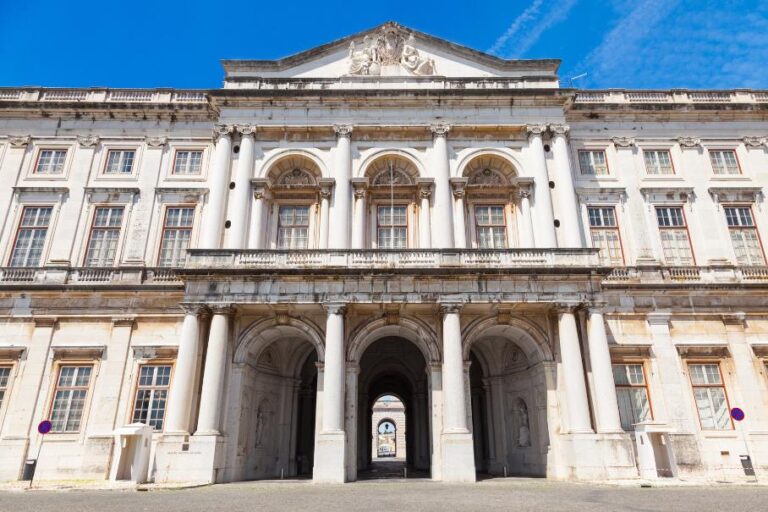
The palace offers a glimpse into the history of the city of Lisbon and the lives of Portugal’s royalty. The palace’s noteworthy collections include furniture, tapestries, sculptures, and other decorative arts. You will be enchanted by the Throne Hall, the Music Room with its elaborate chandeliers, and the impressive equestrian statue gallery.
National Coach Museum (Museu Nacional dos Coches)
The National Coach Museum houses an unparalleled collection of ceremonial and promenade vehicles from the 17th to the 19th centuries. The museum is housed in a contemporary building designed by Pritzker Prize-winning Brazilian architect Paulo Mendes da Rocha.
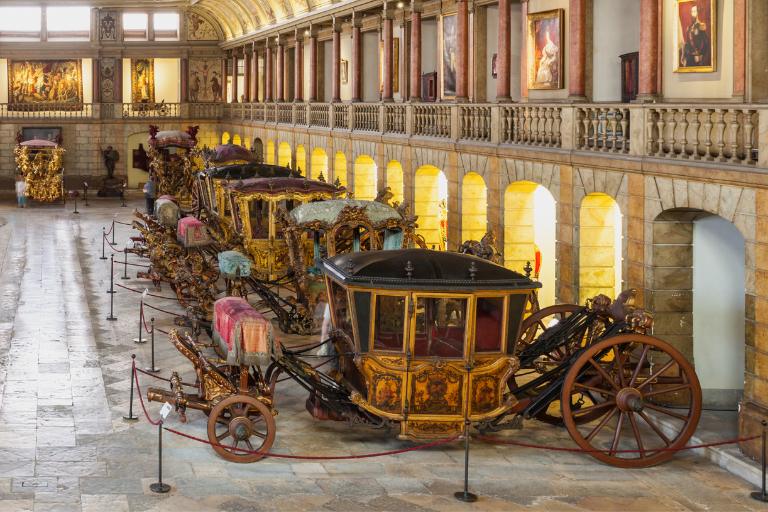
The museum’s collection includes the sumptuous Golden Coach used to carry the Portuguese Monarchs, a cultural and historical emblem. The elaborate carriages are adorned with gilded woodwork, paintings, gilded leather, and lavish textiles. This museum offers a novel approach to the tradition of carriage making and the role of these vehicles in European courtly life. It presents a side of royal history often unseen in traditional art museums.
Puppet Museum (Museu da Marioneta)
This is one of Lisbon museums that celebrates the art of puppetry, an often-overlooked aspect of performing arts with deep historical and cultural roots. It aims to preserve and showcase the diverse traditions of puppetry both in Portugal and around the world.
The museum’s collection features a broad range of puppets, from the traditional to the avant-garde, from various periods and cultures. It also organizes workshops, lectures, and exhibitions that engage with contemporary puppet theatre. Whether you’re an aficionado or simply curious, the Puppet Museum offers a captivating window into puppetry as a form of artistic expression and cultural communication.
Museum of Design and Fashion (MUDE – Museu do Design e da Moda)
MUDE is a fashion museum dedicated to preserving and promoting design and fashion, showcasing various objects and their influence throughout history. The museum’s collection includes an impressive selection of pieces from the 20th and 21st centuries, from furniture and industrial design to fashion and graphics.
With a focus on contemporary design and style, MUDE keeps its exhibits vibrant and relevant. If you’re interested in the intersection of art, culture, and functionality, visiting MUDE provides an opportunity to explore how design and fashion have shaped and reflected human history and society.
Carmo Archaeological Museum (Museu Arqueológico do Carmo)
Housed in the ruins of the Carmo Convent, which was partially destroyed in the 1755 earthquake, the Carmo Archaeological Museum tells the story of Lisbon’s past from prehistoric times to the 18th century. Highlights include prehistoric stone tools, Roman mosaics, Visigothic artifacts, and medieval tombs.
The Gothic vaults of the convent add a hauntingly beautiful ambiance to the museum’s space. As a window into the city’s rich and varied past, a visit to the Carmo Archaeological Museum is essential to understanding Lisbon’s cultural and historical context.
MAAT – Museum of Art, Architecture and Technology
MAAT is a curatorial voice for the future, exploring the connections between art, technology and architecture. With a focus on contemporary art and societal issues, MAAT’s mission is to challenge and inspire visitors through immersive and thought-provoking exhibitions.
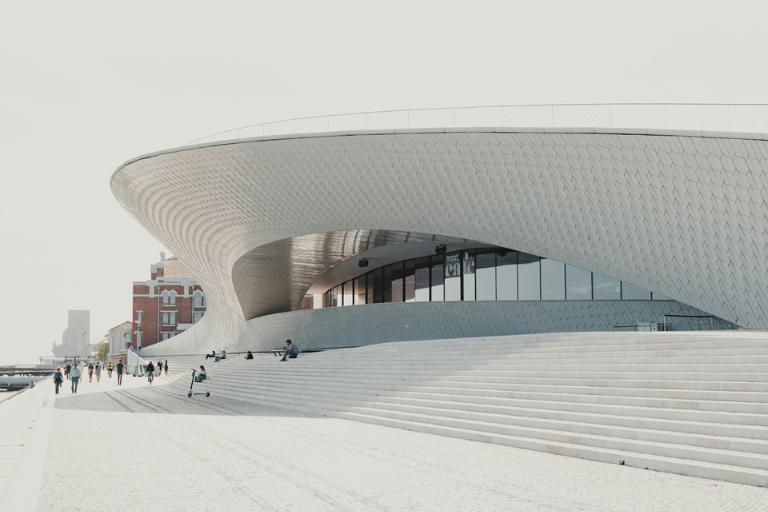
The museum features a dynamic program of temporary exhibitions, including works by groundbreaking contemporary artists and thought leaders in technology and architectural design.
Museum of the Orient (Museu do Oriente)
This museum is part of the Fundação Oriente, founded in 1955 to promote the discovery and interaction between the Portuguese and Asian cultures. The museum’s collection encompasses East Asian art, mainly from Japan, China, Korea, and India, and it includes ceramics, sculptures, textiles, paintings, and a notably comprehensive collection of masks.
Benfica Museum (Museu Benfica Cosme Damião)
Museu Benfica – Cosme Damião is dedicated to sports history, mainly football, and the most critical and successful team in Portuguese football history: Sport Lisboa e Benfica. The museum tells the club’s story through memorabilia, trophies, and interactive displays that bring some of the club’s greatest moments, players, and supporters to life. If you’re passionate about sports history, a visit to the Benfica Museum is a rich and celebratory experience that honours the legacy of a sporting giant.
Chiado Museum of Contemporary Art (Museu de Arte Contemporânea do Chiado)
This world-class museum houses a valuable collection of Portuguese art from the second half of the 19th century to the present day, with a significant representation of works by the most important Portuguese artists from the late 19th century.
The permanent collection displays the diversity and richness of contemporary Portuguese art. The museum regularly hosts temporary exhibitions, and it’s a perfect place to understand Portugal’s place in the global discourse of modern and contemporary art and an appreciation for the country’s artistic lineage.
National Museum of Natural History and Science (Museu Nacional de História Natural e da Ciência)
Much like the Museum of Natural History in London, this museum is dedicated to spreading knowledge about natural history, promoting an understanding of biodiversity, geodiversity and the history of life on Earth. The museum’s collection spans zoology, botany, mineralogy, geology, and paleontology, with specimens from around the world. It includes the famous Bocage centenary whale, an impressive collection of minerals and fossils from the dinosaur age.
Center for Modern Art (Centro de Arte Moderna Gulbenkian)
Here, you’ll find a modern and contemporary art collection distributed between installations, paintings, sculptures, drawings, videos, photographs, and specialized publications. The museum is celebrated for its commitment to engaging with the Portuguese art scene and a broader international context. Works by Portuguese and international artists are displayed with thematic, monographic, or collective exhibitions. The center frequently presents pieces by key figures in the 20th-century artistic revolutions.
The Lisbon Navy Museum illustrates the rich history of the Portuguese navy, the evolution of ships, naval art, navigation, and the Portuguese presence in the world’s maritime scene. It’s an exploration of Portugal’s naval history and a reflection on the nation’s identity and relationship with the sea.
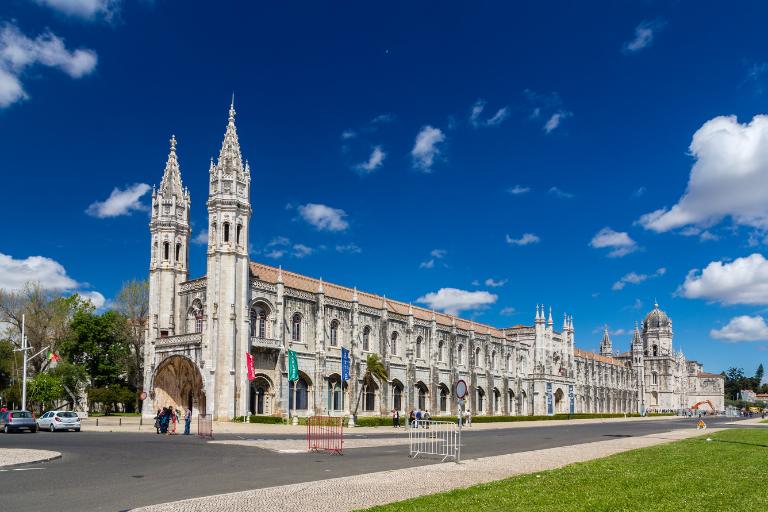
Here, you can explore a comprehensive collection of models of Portuguese naval ships, paintings, archaeological artifacts, and historical documents that take visitors through a journey from the Age of Discovery to the modern era.
PRO TIP: Save money and time by getting the Lisbon Card. You can enjoy free admission to top Lisbon museums and attractions, discounts, and free access to public transit. Available for 24, 48, or 72 hours.
Final thoughts on Lisbon museums
I don’t think many people know just how many amazing museums there are in Lisbon. Whether you’re interested in historical artifacts, modern art, or the natural world, you’ll find a museum that speaks to you. With so much to explore and discover, your trip to Lisbon can be filled with cultural excitement and discovery. So pack your bags and get ready to explore some of the best Lisbon museums the city has to offer.

